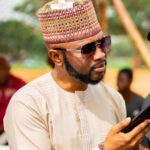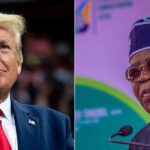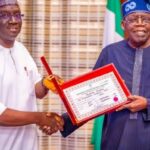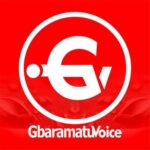Group tasks journalists on amplifying accountability, inclusivity in governance
By Justina Auta
Journalists have been advised to hold government and other stakeholders accountable to issues of gender inclusivity, especially for Persons With Disability (PWDs), women and girls.
Ms Adaora Jack, the Executive Director, Gender Strategy Advancement International (GSAI), an NGO, gave the task at a one-day Inclusive Investigation Training on Accountability in Governance for Reporters and Editors.
The training was organised by GSAI and the Open Society Initiative for West Africa (OSIWA) under the Gender Accountability and Inclusivity in Nigeria (GAIN) project on Monday in Abuja.
Jack underscored the importance of promoting equal rights and opportunities to change the narratives, cultivate culture that values and celebrates inclusion.
“Over the years, GSAI has been at the forefront of advocacy for increased women’s participation in governance, gender-friendly policies and amplifying women’s voices in the civic space.
“GSAI’s mission is centred on five pillars; gender advocacy, accountability, gender justice, gender driven research, and partnership, aiming to position women’s rights as a national priority through the powerful tool of media.
“We gather here for a crucial purpose that involves the inclusive training of 40 reporters and editors from across the country.
“The core objective of this training include to increased reportage and editorials on the performance and shortcomings of the government from a gender accountability perspective.
“This will empower media professionals to independently promote and advance women’s rights, gender accountability and hold the government accountable for its actions,” she said.
She added that the training would encourage and support story projects and reports that shed light on the lapses in the performance of public office holders, and the political and economic performance of Nigeria.
Mr Patrick Osadebamwen, the FCT Chairman, Nigerian Union of Journalists (NUJ), harped on the role of media in highlighting women’s issues and gender inclusivity.
Osadebamwen, represented by his deputy, Timothy Choji, said: “The training sessions are skewed to open your eyes and storytelling mind to see the lapses in genuinely designed policies and programme of government national or subnational that would need to be tweaked for good.”
Mr Dele Atunbi, a Legal Practitioner and Head of Judiciary Desk, Nigerian Television Authority, (NTA), stressed the need for the government to provide enabling environment for gender equality. “Government should be held accountable and responsible for issues on women and children,” he said.
Also, Dr Inya Ode, a gender advocate and media personality, urged the media to adhere to the ethics of the profession, when reporting gender related matters.
Ode also called on the media to use their platforms to sensitise the public on eliminating stereotypes against Persons With Disabilities (PWDs).
“Our stories should engender positive change in the society and as gatekeepers in the field, we should readily inform and cause positive transformation,” she charged.
Ms Susan Ihuoma, one of the facilitators, said: “Let’s make Nigeria a place where disability inclusion is the norm and women of all abilities can thrive and contribute to our nation’s growth and prosperity.
”Together, we can turn this vision into a reality.”
Renowned journalist, Mr Amos Dunia, said: “We should be determined to write stories that would touch the lives of the common man and we should be more gender inclusive.”
Ms Tina Abeku, a gender reporter with the Guardian Newspaper and a participant, said the exercise has broadened her knowledge on inclusivity and holding government accountable for implementation of policies affecting women and girls with disabilities. (NAN) (www.nannews.ng)
Edited by Dorcas Jonah/Muhammad Suleiman Tola
Published By

- Senior Editor
Has also recently published
 ForeignJuly 10, 2025Tinubu never stopped 5-year visa for U S. citizens — Presidency
ForeignJuly 10, 2025Tinubu never stopped 5-year visa for U S. citizens — Presidency  General NewsJuly 10, 2025Tinubu urges Okpebholo to leverage S’Court victory for accelerated devt
General NewsJuly 10, 2025Tinubu urges Okpebholo to leverage S’Court victory for accelerated devt Economy/BusinessJuly 9, 2025IMF”s 3.4 economic projection misrepresents Nigeria’s potential — TMSG
Economy/BusinessJuly 9, 2025IMF”s 3.4 economic projection misrepresents Nigeria’s potential — TMSG Niger DeltaJuly 9, 2025N/Delta: GbaramatuVoice rallies dialogue on resource control, environmental Justice
Niger DeltaJuly 9, 2025N/Delta: GbaramatuVoice rallies dialogue on resource control, environmental Justice





